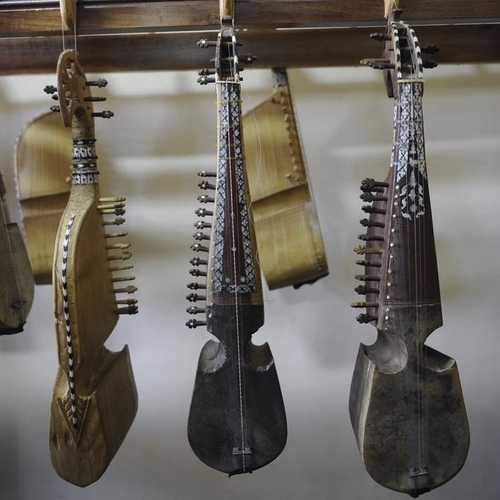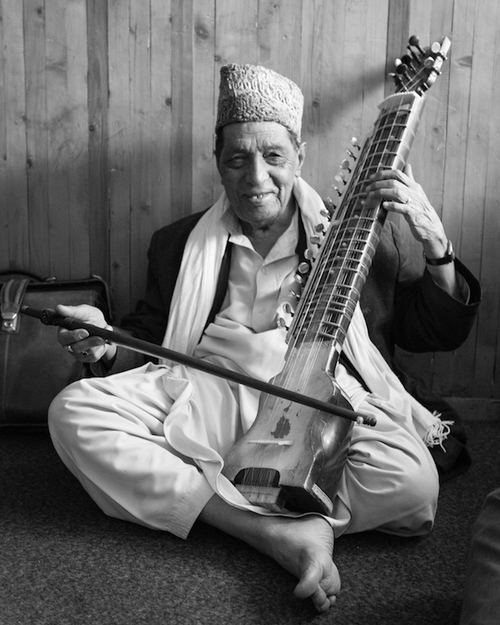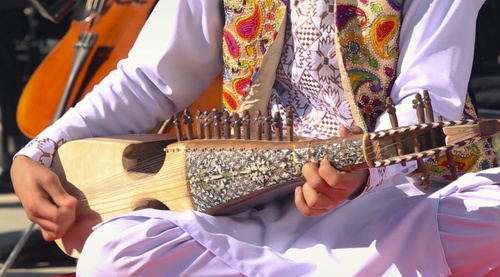Afghanistan National Institute of Music
This is a collection of articles archived for the excellence of their content. |
What is the ANIM?
February 15, 2018: Afghanistan National Institute of Music
The Nahid Ensemble of Afghan is comprised of male and female students of the Afghanistan National Institute of Music (ANIM). ANIM is Afghanistan’s first institute of music where talented Afghan children regardless of their gender, social circumstances and ethnic background are trained in Afghan traditional and Western classical music, while obtaining high quality academic or core education.
ANIM has a special focus on supporting the most disadvantaged group in Afghan society; many members of the Nahid Ensemble come from host orphanages or were previously street working children and represent provinces across the country including Nuristan, Kunar, Farah, and Bamiyan.
The group has toured extensively, initially as members of the Afghanistan Youth Orchestra and the Girls Ensemble, Zohra. In 2015, the Nahid Ensemble performed at ChoirFest Middle East and received the ‘Best Regional Choir’ Award. The group also performed for the President of Afghanistan and was invited by President of Turkmenistan for a series of performances in the region.
They perform regularly around Afghanistan and in neighbouring countries.
History, aims
Afghanistan National Institute of Music (ANIM) and Dr. Ahmad Sarmast
ANIM provides a dynamic, challenging, and safe learning environment for all students regardless of their gender, ethnicity, religious sect, or socio-economic circumstances. We focus especially on supporting the most disadvantaged children in Afghanistan – orphans, street-working vendors and girls.
Aims
1. Assure Musical Rights
2. Transform Lives through Music
3. Revive and Preserve Afghan Music
4. Train Future Music Educators
5. Lead Cultural Diplomacy between Afghanistan and the International Community
History
Music in Afghanistan thrived for centuries; in the 1980’s alone there was a thriving pop and film music industry, hundreds of ensembles and a unique radio orchestra with Western and Afghan instruments. All of this was destroyed by the civil war in the 1990’s and its aftermath.
Between 1996 and 2001, music was completely banned in Afghanistan. In 2006, Dr. Ahmad Sarmast, then a Research Fellow at the Monash Asia Institute, Monash University, Melbourne, Australia, initiated the Revival of Afghan Music (ROAM) project. His father had been a very famous conductor and Dr. Sarmast had been in exile from his homeland for fifteen years. In April 2008 after two years of planning, and with the full support of the Ministry of Education and the Deputy Ministry for Technical Vocation and Educational Training, the vision of ANIM was taken by Dr. Ahmad Sarmast to the donor community.
With support from the World Bank, the Embassy of the USA, the German Government and many other donors, the Afghanistan National Institute of Music was inaugurated on June 20, 2010. The project “Revival of Music Education in Afghanistan” received the IMC Music Rights Award in 2009 as an encouragement to the project and a signal to the donor community.
2008-18: the pathway
Afghanistan National Institute of Music

From: Afghanistan National Institute of Music

From: Afghanistan National Institute of Music

From: Afghanistan National Institute of Music

From: Afghanistan National Institute of Music
The Pathway to ANIM
Afghanistan has one of the richest and most complex music histories in the world. The country sits at a topographical and cultural crossroads, and its music has been a major influence in the East and the West.
Music in Afghanistan thrived for centuries; in the 1980’s alone there was a thriving pop and film music industry, hundreds of ensembles and a unique radio orchestra with Western and Afghan instruments. All of this was destroyed by the civil war in the 1990’s and its aftermath.
Between 1996 and 2001, music was completely banned in Afghanistan.
In 2006, Dr. Ahmad Sarmast, then a Research Fellow at the Monash Asia Institute, Monash University, Melbourne, Australia, initiated the Revival of Afghan Music (ROAM) project. His father had been a very famous conductor and Dr. Sarmast had been in exile from his homeland for fifteen years.
In April 2008 after two years of planning, and with the full support of the Ministry of Education and the Deputy Ministry for Technical Vocation and Educational Training, the vision of ANIM was taken by Dr. Ahmad Sarmast to the donor community.
With support from the World Bank, the Embassy of the USA, the German Government and many other donors, the Afghanistan National Institute of Music was inaugurated on June 20, 2010.
ANIM currently has nearly 250 students. We have developed a position in Afghanistan that is without parallel, and over the last few years have not only provided an invaluable education to hundreds of students, but also contributed to healing the wounds of this war-torn country. ANIM students and faculty have time and time again provided specially composed music for significant events in the life of Afghanistan, including the 2012 Prayer for Peace, the 2015 launch of the Women’s Day Song and the National Children’s Anthem of Afghanistan. Furthermore, in 2016 the Afghan Women's Orchestra "Zohra" and the Junior Ensemble of Traditional instruments released a collaborative album with the American ensemble Cuatro Puntos. It was released on the UK label Toccata Classics, distributed internationally by Naxos, and has received overwhelmingly positive reviews all around the world from prominent sources such as BBC Radio (UK) and NPR (USA.)
The success of this initial plan will be replicated in three major provinces in the future - the cities of Herat, Mazar-e Sharif, and Jalalabad.